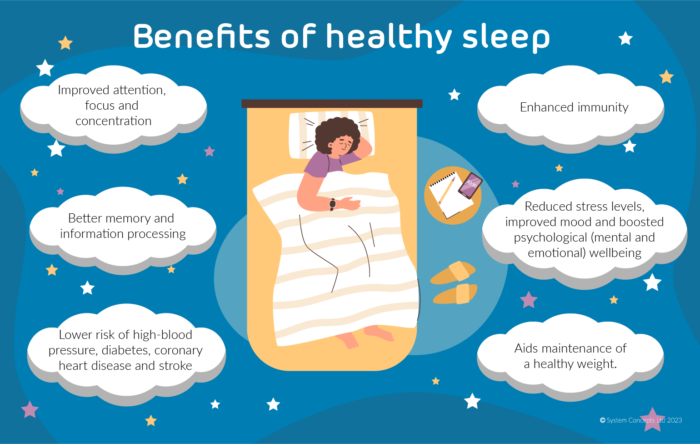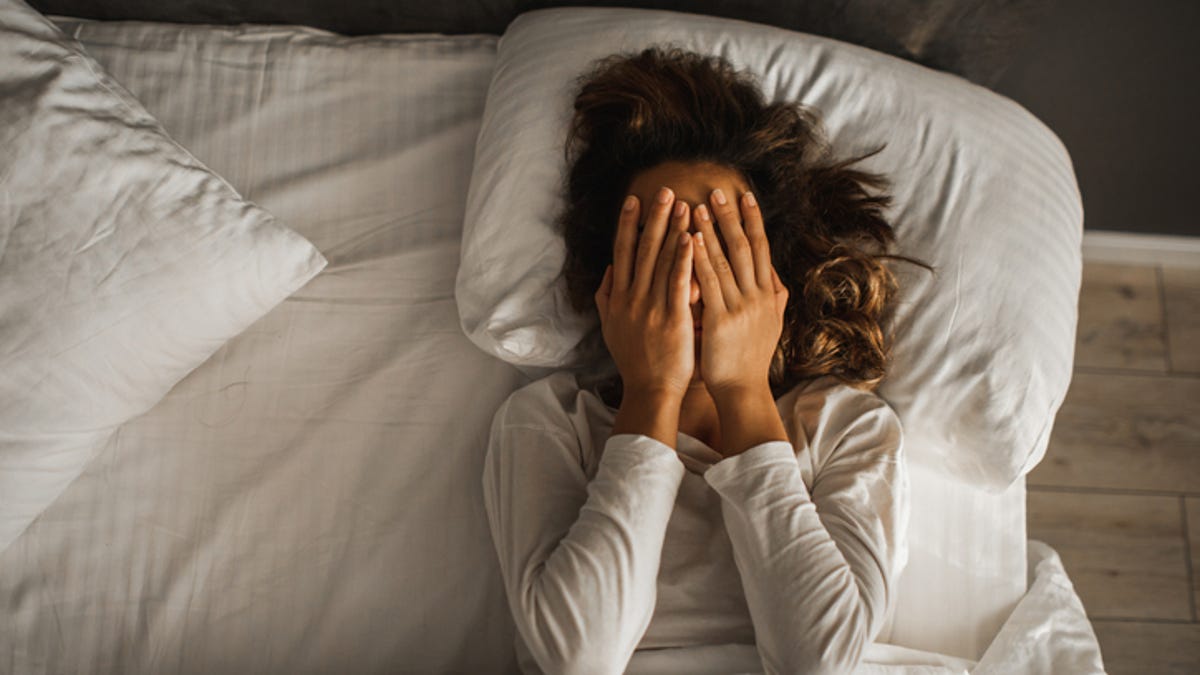What Happens to Your Body When You Don’t Get Enough Sleep?

- Widespread Sleep Deprivation: Many people experience sluggishness and tiredness due to chronic sleep deprivation.
- CDC Findings: According to the CDC, one-third of U.S. adults usually get less than the recommended amount of sleep.
- Public Health Concern: The U.S. Department of Health and Human Services aims to increase the proportion of adults getting adequate sleep by 2030.
- Impact on Health: Chronic poor sleep can have detrimental effects on overall health.
- Healthy People 2030 Project: Increasing sleep is listed as a goal in the U.S. Department of Health and Human Services’ initiative.
How Much Sleep Is Enough?

- No One-Size-Fits-All: There’s no universal definition for “enough” sleep, but generally, most adults need at least seven hours per night.
- Indicators of Adequate Sleep: Feeling refreshed upon waking and waking up naturally without an alarm clock are positive signs.
- Signs of Insufficient Rest: Feeling tired, irritable, excessive hunger, memory/concentration issues, or daytime sleepiness indicate inadequate sleep.
- Quality Matters: Sleep quality is crucial, impacting overall health. It involves factors like sleep efficiency, latency, duration, and wake after sleep onset.
According to research, poor sleep quality contributes to disease and poor health outcomes. So what defines “quality” sleep? This concept involves four components:
- Sleep efficiency (whether sleep makes you feel rested)
- Sleep latency (how long it takes to fall asleep)
- Sleep duration (how long you stay asleep)
- Wake after sleep onset (periods of wakefulness during the night)
Health Benefits of Getting Enough Sleep

We all know how good it feels to wake up after a night of deep, refreshing sleep—and how bad it feels to arise after a night of staring at the clock. Besides making you groggy the next day, your sleep patterns can have a deeper impact on overall health. Here are five ways sufficient slumber boosts your well-being.
May Reduce the Risk of Chronic Disease
- Rest and Repair: Good sleep not only lets your body rest but also helps it fix itself. Tissues and cells rebuild during sleep.
- Health Benefits: Getting enough quality sleep reduces the chances of getting serious diseases like diabetes, heart problems, and cancer.
Helps Maintain a Healthy Weight
- Role of Rest in Weight Loss: While exercise is crucial for burning calories, research highlights the importance of sleep in weight management.
- Study Findings: A study tracking over 68,000 women found a 15% higher likelihood of obesity in those sleeping five hours or less compared to those with seven hours of sleep.
- Sleep Duration and Obesity: Recent research suggests that short sleep duration could contribute to the obesity epidemic.
- Effects of Poor Sleep: Lack of quality sleep hinders cell repair and inflammation reduction, potentially leading to weight gain. It also increases the likelihood of feeling too tired to exercise and boosts the appetite hormone ghrelin, encouraging overeating.
Helps With Focus and Alertness
- Performance Impact: In preparation for a significant test or work presentation, ensuring adequate sleep is crucial.
- Brain Function: Research shows that poor sleep reduces the body’s ability to supply enough blood flow to the brain, leading to impaired cognitive performance.
- Reaction Time and Alertness: Insufficient sleep is linked to slower reaction times, inattentiveness, and poor responses to environmental signals, affecting activities like driving and work tasks. Getting enough sleep is essential for optimal focus and alertness.
May Prevent Dementia
- Short-Term Benefits: Healthy sleep maintains mental sharpness.
- Long-Term Impact: More deep sleep is linked to a lower risk of developing Alzheimer’s disease.
- Deep Sleep and Brain Health: Restorative sleep aids in “cleaning” the brain of substances like beta-amyloids associated with Alzheimer’s development.
Boosts Mental Health
- Brain Impact of Sleep Deprivation: Sleep deprivation can lead to symptoms of mental illness, including depression, anxiety, and suicidal thoughts.
- Positive Influence of Restful Sleep: Conversely, getting restful sleep may help alleviate these mental health issues.
- Study Findings: Research in The Lancet Psychiatry indicates that participants receiving sleep treatment were less likely to report symptoms of depression, anxiety disorders, and psychosis.
Can You Get Too Much Sleep?
With all the benefits of sleep, you might think there’s no such thing as too much. But regularly requiring more than nine hours a night could be a sign of a health problem. Strive for the seven-to-nine-hour mark, and if you find you need more than this, consult a healthcare provider
How to Get Better Sleep
Want to make better sleep a reality? Focus on these strategies:
- Minimize stress. Stress is the enemy of sleep. Do what you can to process life’s stressors with tactics like mindfulness meditation, talking out problems with friends, or going to therapy.
- Eat right. Your diet has more impact on your sleep than you might realize. Avoid caffeine several hours before bedtime, or try a sleep-promoting snack before hitting the hay.
- Keep a consistent bedtime. Going to bed at the same time each night creates a rhythm your body expects.
- Get some exercise. Working out uses up energy, allowing you to feel tired when bedtime rolls around. For even better results, take your exercise outside. Research shows that vitamin D (the sunshine vitamin) is involved in sleep regulation.16






